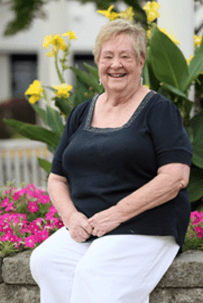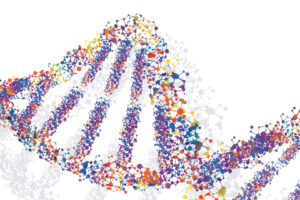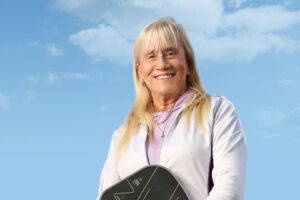Freezing small tumors could be the treatment of the future

Muriel Smith of Freehold stopped getting yearly mammograms at 75. “Who needs them at this age?” she thought.
Four years later, the offer of a $50 off spa gift certificate with any mammogram at the Star & Barry Tobias Women’s Health Center at CentraState piqued her interest, and Muriel, now 79, figured she had nothing to lose.
To her surprise, her mammogram revealed a suspicious breast lump, which was then confirmed to be cancer. Muriel next met with a team of specialists, including Kenneth Tomkovich, MD, board-certified interventional radiologist and lead investigator for a research trial on the use of cryoablation to treat breast cancer.
Muriel had two options: surgery to remove the tumor, which is the current standard-of-care treatment, or cryoablation, a technique that uses a needle-like probe to freeze and potentially eradicate the tumor. Muriel fit the trial criteria for age (over 65), tumor type, and tumor size (1.5 cm or smaller). The choice was up to Muriel.
For the past 10 years, cryoablation has been used successfully to treat a number of other cancers as well as benign breast tumors. Dr. Tomkovich concluded that it could be effective in treating breast cancer, and he initiated the trial sponsored by IceCure Medical, Inc.
Cryoablation replaces surgery only and does not negate the need for radiation or chemical treatments.
Dr. Tomkovich particularly finds cryoablation beneficial because “the physician can control the size of the ice ball that is formed in the procedure through the guidance of ultrasound, reducing damage to surrounding tissues.” The body then reabsorbs the dead cells, eliminating any need for surgery, a procedure that removes much more breast tissue.
“Despite some refinements in current breast cancer treatment, the typical protocol doesn’t change whether you’re 42, 62, or 82,” Dr. Tomkovich says. “I think everyone should be treated as an individual, especially those with very small, nonaggressive tumors, or those patients who are a high surgical risk.”
Research is also raising the possibility of a resulting immunity to the particular cancer. “When the body reabsorbs the dead cancer cells in the breast, trials have shown that some patients have developed an immunity to that cancer,” Dr. Tomkovich reports.
As Muriel listened, the pendulum swung toward cryoablation. Muriel found the concept “neat, logical, and wonderful.” After some preliminary research, Muriel called her doctor back. “What’s to think about?” Muriel said. “You can cut me open or just insert a needle? I want cryoablation.”
A short time later, Muriel had the 30-minute procedure, met her friends for lunch, and finalized her plans to tour Israel. As part of the study, however, Muriel will meet intermittently with the trial’s team of specialists in the Women’s Health Center for the next five years.
Muriel is appreciative of the warmth she found at the Women’s Health Center and the fact that CentraState is “at the cutting edge of research.” As CentraState is one of only eight centers nationwide to offer the study and the only one in New Jersey, Muriel was convinced that she was meant to participate in the study, if only to help save younger generations of women. “By the time my granddaughters are older, there will probably be advances based on cryoablation,” she says.
Dr. Tomkovich is hoping the same thing. “Part of the reason I love this trial is I think it’s going to expand and be applicable to even younger patients,” he says. “We have developed programs here to rival any in the nation. I continue to get invited to lecture because we’re doing procedures and treatments that are advanced and are going to be the future of medicine, particularly in breast cancer. Not a single patient in this trial has had a surgical procedure to remove the cancer. That is what is unique about this study. It’s the first large-scale trial in the world to do this. I’m proud to say that we’re doing it from our center here in the middle of Freehold.”
Muriel adds, “I don’t know why anyone wouldn’t try cryoablation. If it doesn’t work, then I still have the option of surgery open to me.” Her only complaint appears to be that she gained little sympathy from her friends. It all seemed too easy. She now refers to her experience as “the 47 days I had cancer.”
For more information about the Star & Barry Tobias Women’s Health Center at CentraState, call 866-CENTRA7 (866-236-8727).





